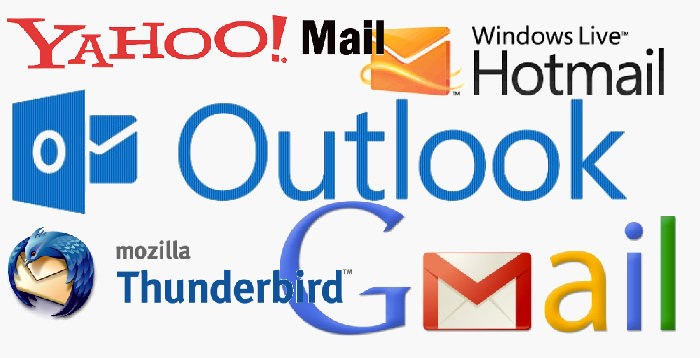What type of email do you use? Web-based or Client-based? Confused already? Then read on…
Many people, whom I encounter in my business, are confused about the difference between Web-based services such as Hotmail and Gmail as opposed to Client-based email such as Microsoft’s Outlook or Outlook Express.
This difference can be explained simply as follows.
In Web-based services the user’s email resides on the remote server and users access it using a web browser, such as Internet Explorer or Google Chrome. Each time the user wants to access email he/she has to be online.
In Client-based services email is downloaded to the PC and the user then has full access to it from the PC. This means that once emails have been downloaded, the user can read them even when not online. The user can also send and reply offline. These sent emails sit dormant in the user’s Outbox until he is back online, when they are sent to the recipient.
To use an offline analogy, Web-based is the equivalent of leaving all letters at the post office. Each time you want to read a letter you would have to go back to the post office. PC-based mail is the equivalent of having letters delivered through your door, where you’ve got them to hand to read and work on at your leisure.
So what are the advantages and disadvantages of each system? To illustrate this, let’s look at a couple of fictitious people.
He can also use his smart phone to access Gmail although he limits use of this to keep connection costs down. The only drawback John finds with Gmail is that it limits the amount of space it provides for storing old emails. Whilst being a disadvantage, John can live with it, because he has little need to keep email for more than a couple of months.![]() John uses Gmail. His business requires him to travel a lot but when he does, he rarely take a laptop with him. Gmail suits him because he can access it from internet cafes, or from any PC that’s available to him and connected to the internet.
John uses Gmail. His business requires him to travel a lot but when he does, he rarely take a laptop with him. Gmail suits him because he can access it from internet cafes, or from any PC that’s available to him and connected to the internet.
She frequently archives email folders and stores them offline on DVDs. Web-based email simply wouldn’t allow her to do this. Rachel doesn’t travel much, but when she does she takes her laptop, even on holiday, but in order to download her email’ she has to get a connection to her laptop from the internet. She can also access email from her smart phone, but the sheer volume she receive make this impractical for anything more than casually scanning incoming mail. Hence the need to take her laptop everywhere.![]() Rachel uses Outlook on her laptop. She receives a lot of email, much of it with large attachments. For legal reasons she needs to keep most of her email for anything up to 5 years.
Rachel uses Outlook on her laptop. She receives a lot of email, much of it with large attachments. For legal reasons she needs to keep most of her email for anything up to 5 years.
So which of the above email usage profiles, John’s or Rachel’s, is closest you yours? My guess is that, if you use email for personal or infrequent business use, then a Web-based email service will be best. My recommendation is Gmail, particularly if you have an Android smart phone.
I would specifically advise against using Yahoo Mail. A number of people I know have had their Yahoo accounts hijacked and used for spam.
For anything other than infrequent business use, then go for Client-based email. Outlook is fine but you have to pay for it. If you want free Client-based email try something like Mozilla Thunderbird.
As a final word though, whatever email system you choose, do get your own domain name if you’re using it for business. Yourbusiness@hotmail.com sound cheap and tacky. So get your own domain name which will cost a few pounds per year, and get your ISP or web developer to configure it to be used with whatever email system you’re using.






